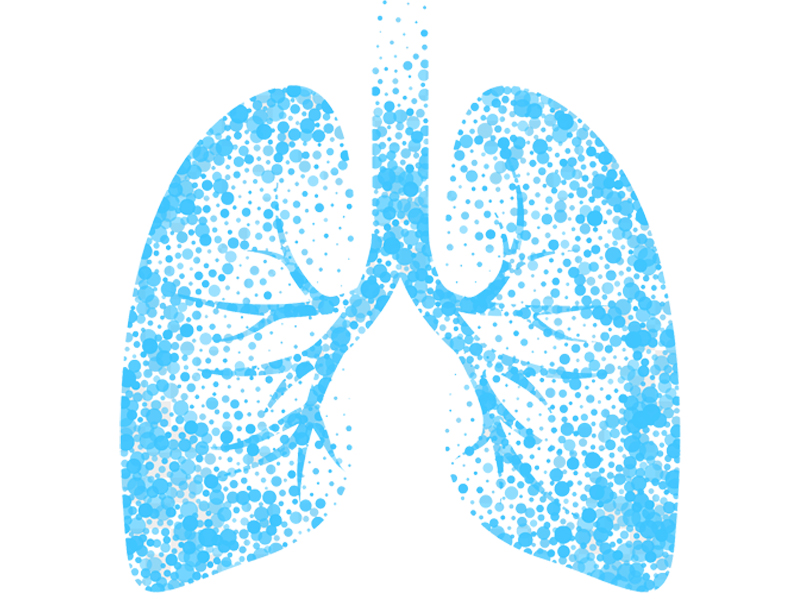Get Easy Health Digest™ in your inbox and don’t miss a thing when you subscribe today. Plus, get the free bonus report, Mother Nature’s Tips, Tricks and Remedies for Cholesterol, Blood Pressure & Blood Sugar as my way of saying welcome to the community!
What diabetics need to know about their higher risk for viral respiratory infections

It’s a fact: Fall and winter are when most people get respiratory infections like colds, flus, and pneumonia. And while these infections go after everybody, one group really gets walloped by them… people with diabetes.
People with diabetes are not only more likely to get respiratory infections, but their respiratory infections get more severe. They’re six times more likely to be hospitalized for flu or flu-like infections. They’re four to five times more likely to develop tuberculosis than people without diabetes. And they’re more likely to die from pneumonia or influenza infections than people without diabetes. Need I go on?
The proof is in the (sugar-free) pudding. Respiratory infections are some serious stuff if you’re diabetic. The question is… why? Why does diabetes put your respiratory tract at risk? And is there anything you can do this time of year to protect yourself?
Well, a new study answers at least one of those questions. It shows exactly what happens inside diabetic lungs during a deadly respiratory tract infection… information you need to know now that COVID-19 (AKA coronavirus) is a threat in the states.
This is how a diabetic lung responds to coronavirus MERS
A study from researchers at the University of Maryland School of Medicine (UMSOM) and the Johns Hopkins University School of Medicine shows that diabetic mice have a more severe and prolonged inflammatory response in their lungs when exposed the Middle East respiratory syndrome coronavirus (MERS-CoV)
Now, MERS-CoV is a virus that first popped up in Saudi Arabia in 2012. It’s unusually deadly. About 35 percent of people who get it die. But it isn’t a problem in the U.S. There have only been two confirmed cases to date. And both of those were likely picked up in Saudi Arabia. So, it’s not necessarily something you need to worry about. But if you have diabetes, the results of this study are still something you should be aware of because they may correlate to other respiratory infections from a viral source, too… including COVID-19.
Diabetic mice exposed to MERS-CoV had a delayed and prolonged inflammatory response in their lungs. They also had less inflammatory cytokines, inflammatory macrophages, and T cells. What does that mean?
Their body wasn’t mounting a good response against the infection, which is probably why diabetic people get more severe MERS-CoV infections… and are more susceptible to severe cases of flu, pneumonia and other respiratory infections.
How to defend yourself against respiratory infections
So how do you keep your immune system from mounting a subpar attack on the next respiratory bug that comes your way? Like COVID-19?
Well, the first thing to do is get your blood sugar as balanced as possible. Previous studies show that having excess sugar in your bloodstream can prevent your immune cells from responding as vigorously to illness and injuries (that’s why many diabetics have slow healing wounds). So, if you can get your blood sugar under control, there’s a better chance your immune system will be able to do its job.
Related: 5 steps to get ready for flu season
You can also follow healthy lifestyle habits that support a strong immune system, like:
- Eating lots of fruits and vegetables (10 servings per day will have a near-miraculous effect on your immune strength and overall health)
- Saying no to cigarettes (especially if you want to avoid respiratory infections. It’s just common sense)
- Exercising at least 30 minutes per day
- Getting at least 7 to 8 hours of sleep per night
- De-stressing daily (do yoga, meditate, get a massage, go for a walk in nature or whatever helps you feel calm and relaxed)
- Washing your hands regularly to keep those bugs from sneaking in your system
Sources:
- Why respiratory infections are more deadly in those with diabetes — MedicalXpress
- Comorbid diabetes results in immune dysregulation and enhanced disease severity following MERS-CoV infection — JCI Insight
- The etiology of lower respiratory tract infections in people with diabetes — Pneumonologia i Alergologia Polska
- MERS in the U.S. — Centers for Disease Control and Prevention
- How to boost your immune system — Harvard Health Publishing
- For a longer life, researchers say eat this many fruits and veggies per day — CBS News













